I’ve had a go at the Proton Prevé, finally. After hearing so much about it from my colleagues (raves and rants, but more of the former) who attended the preview drive, and seeing the latest Proton in the metal at the launch, a drive event to Cherating in THE car of the moment was not to be missed!
The media drive was divided into two groups, and I drove the Prevé on the return leg from the East Coast to KL. Two variants out of three were brought to the event – the range-topping Preve 1.6 CFE (turbo engine and CVT gearbox) and the entry level 1.6 Manual, powered by the Campro IAFM+ engine.
No need to go all technical – after months of teasing, a detailed launch report and drive impressions from two testers, I believe you already know what you need to know, technically.
To briefly recap, the C-segment Prevé is available in three variants – the 1.6 CVT Premium, the 1.6 Executive CVT and 1.6 Executive Manual. The Premium CVT is powered by a turbocharged CFE engine with 138 hp and 205 Nm, while the Executive models come with the naturally-aspirated CamPro IAFM+ engine with 107 hp and 150 Nm.
The turbocharged range-topper does 0-100 km/h in 9.6 seconds and has a top speed of 190 km/h. The cheapest manual variant manages 0-100 in 12 seconds and 180 km/h. The IAFM+ CVT combo is the slowest with 12.5 seconds and 170 km/h.
The most-booked variant so far is the Premium, by a huge margin. In contrast, the stick-shift Prevé is stuck in single digits, percentage wise.
We started the day driving the 1.6 Manual on twisty trunk roads, before upgrading to the Turbo CVT, a good sequence. The base stick-shift Prevé is slow as expected, with acceleration found wanting. This is evident when pulling off from low speeds and when momentum is broken.
Maintaining momentum is key in this variant, and the peaky engine needs to be worked hard in any case. More low to mid-end torque would definitely be welcome.
That said, bear in mind that media drives often involve all-out driving and fast convoys. We were also “chasing” the lead group in the Turbo (and even managed to hang on to some poorly driven examples), so the lack of grunt, especially at the low end, was amplified. The M/T Prevé is slow in context, but is usable in normal driving.
A car is so much more than “power” though, and the Prevé fares very well in other driving aspects. Especially nice is the balance between ride comfort and handling, as well as subjective things such as the feel of the controls.
What stands out the most for me is ride comfort and damping, which is unrivaled in the Asian C-segment sedan class. Many will say “Continental feel,” but I can think of some Euro hatches that could do with this level of composure. It makes bad roads feel good, the Prevé.
This unflappable feel extends to the road holding. Hit a dip or bump mid corner and you’ll know what we mean. The Proton sticks to its line, doesn’t gets thrown off course and the rear end doesn’t hop across horizontal obstacles.
This, combined with the natural feel of the steering and brake pedal, means that Prevé is a car that inspires confidence when driven fast – you always know what the car is doing, and can gauge how much it has in reserve. Not easy to measure, or explain for that matter, but I rather this than plenty of cold hard grip without the confidence.
Since this is a family car, the suspension is on the soft side of the scale, so there’s some roll in tighter bends, but nothing off-putting or too dramatic. The observations above were gleaned from fast country road driving – short customer test drives around the block will reveal a “comfortable” and “easy to drive” car, which is accurate.
What didn’t I like? The instrument panel. The fonts are too flat and stylised for me – difficult to read at a glance. If Proton was trying to achieve a “sporty” feel, they should note that Audi dials, and even those in the Lancer/Inspira, look good and are very legible. Jogging through the multi-info display, I noticed that the “TRIP A” font size is larger than the km reading, when it should be the other way round.
More on the interior. The Turbo comes with a head unit complete with sat-nav, and while this is a good addition, it’s could be better designed. It’s not efficient use of space when the border is so wide, and the screen so small. They could have easily put a bigger screen and just two vertical strips of buttons/dials, VW style, but I’m told that this is an off-the-shelf head unit, and not a clean sheet design.
I’m also not too keen on the gold-ish trim colour in the M/T, preferring the dark wood of the Turbo. No complaints on the ergonomics, though. Everything is on hand and the driving position is good.
Moving on, the 1.6 CVT Premium is a much faster car, obviously. But fast is not the first impression I get, and it’s most probably due to the stepless gearbox. I may not be a fan of CVT, but I recognise that this type of transmission – chosen here for both cost and fuel economy – can be painless and relaxing when done right. Nissan does CVTs well, and the Sylphy is a great example of how the ‘box can add to the driving experience.
Acceleration in the Turbo feels labourious. The key word here is “feels,” because a glance at the speedo needle shows that we’re making good progress. Initial lag, a low-rpm drone and a faint whine throughout means that the Punch CVT isn’t the most “regular automatic-like” CVT in the market. The manual mode feels artificial as well, and the steering paddles work with toy-like tactility.
The 1.6 CFE could be a great engine, but we’ll only get to know it better with a proper manual gearbox or a regular torque converter automatic. The latter is unlikely, because a five- or six-speed unit is costly, and Proton has already gone well down the CVT route.
I reached KL with mixed feelings. The Prevé is a good car to drive and live with (decent looks, lots of space, good NVH), and it has a great package of comfort, handling and feel. Many will be well served by Proton’s latest, I’m sure, but there’s not one variant that’s “just nice” for Mr. Picky here.
The CFE has the kit list, nicer cabin and pace, but its CVT isn’t on par with the best out there. The entry-level manual, on the other hand, has the correct gearbox (I own two manual cars) but lacks pace. I didn’t get to try the CVT/IAFM+ combo, but Anthony and Chris told me not to bother!
Article sources: Paultan.org

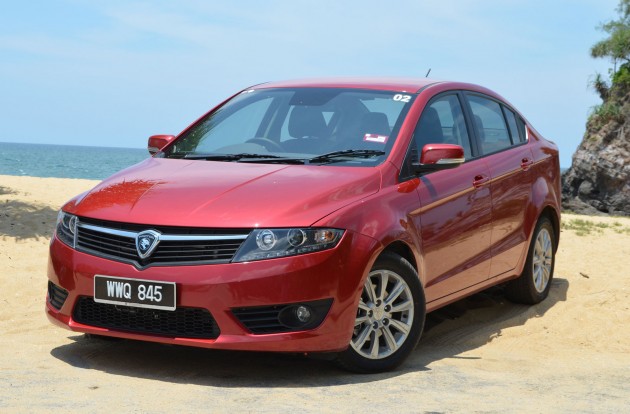
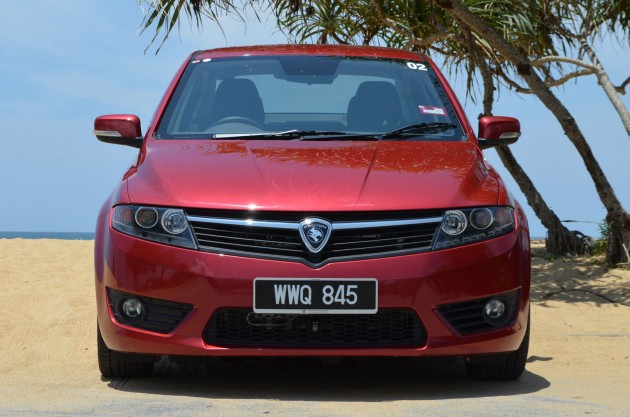

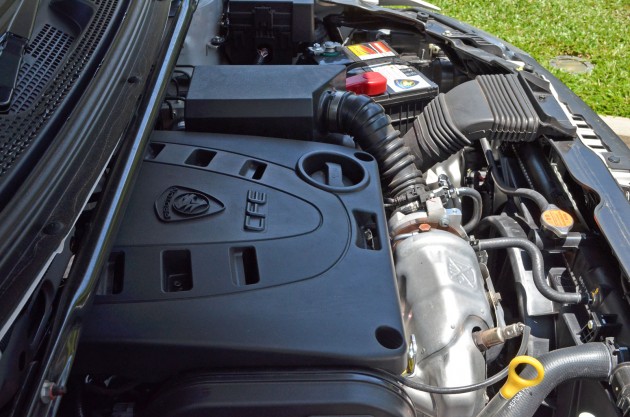
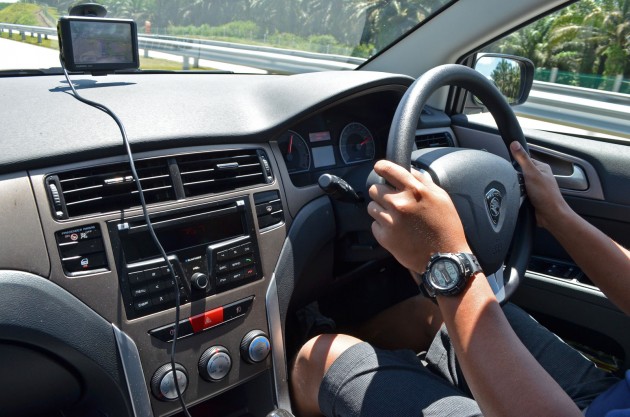

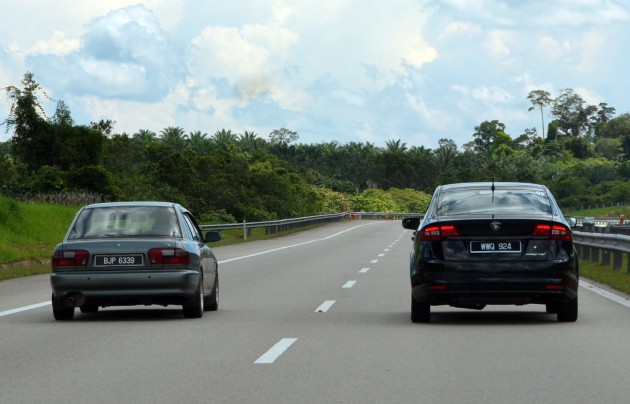

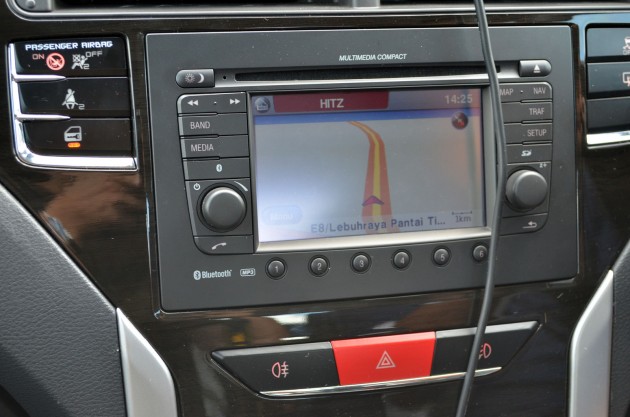



0 comments:
Post a Comment